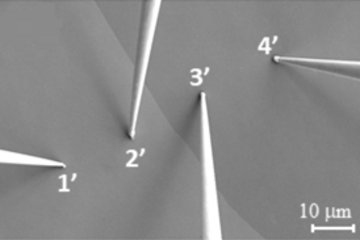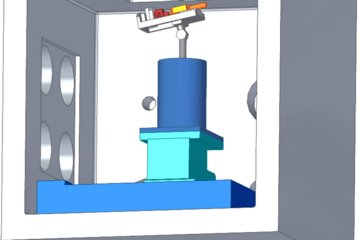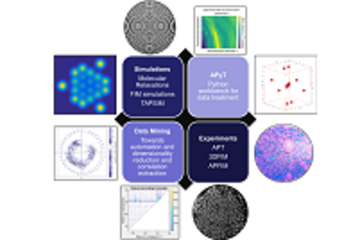All genres
61.
Talk
Influence of long-range C-C elastic interactions on the structural stability of dilute Fe-C solid solutions. Invited Talk at ICAMS, Bochum, Germany (2009)
62.
Talk
Atomistic calculations of interfaces: Bridging the relevant scales. Institute’s Colloquium, Institut für Gesteinshüttenkunde, Aachen, Germany (2009)
63.
Talk
A multiscale study of the Hydrogen enhanced local plasticity (HELP) mechanism. Asia Steel Conference 2009, Busan, South Korea (2009)
64.
Talk
Multi-scale modeling of the phase stability of interstitial Fe-C solid solutions. Invited talk at MPI for Metal Research, Stuttgart, Germany (2009)
65.
Talk
An atomistic study of low-C tetragonal Fe-C states. DPG Spring Meeting 2009, Dresden, Germany (2009)
66.
Talk
A multiscale study of the Hydrogen-enhanced local plasticity mechanism (HELP). Fruehjahrstagung der Deutschen Physikalischen Gesellschaft 2009, Dresden, Germany (2009)
67.
Talk
A multiscale study of hydrogen embrittlement in metals: Revisitting the Hydrogen-enhanced local plasticity mechanism. APS March Meeting, Pittsburgh, PA, USA (2009)
68.
Talk
Ab initio based approaches to failure mechanisms in steels: Application to hydrogen embrittlement. Materialphysikalisches Seminar, Georg August Universitaet Goettingen (2008)
69.
Talk
Modeling of the strain-induced interaction between carbon atoms in Fe-C solid solution using embedded atom method potential. Contemporary Problems of Metal Physics, Kiev, Ukraine (2008)
70.
Talk
Multiscale simulations of Hydrogen embrittlement. Materials Science and Engineering (MSE08), Nürnberg, Germany (2008)
71.
Talk
Hydrogen-enhanced local plasticity - An atomistic study. Materials Science and Engineering 2008, Nuernberg, Germany (2008)
72.
Talk
Atomistic modeling of the strain-induced interaction between carbon atoms in Fe-C solid solution. Computational Materials Science Workshop, Ebernburg Castle, Germany (2008)
73.
Talk
Atomistic modeling of the strain-induced interaction between carbon atoms in Fe-C solid solution. XVII International Materials Research Congress 2008, Cancun, Mexico (2008)
74.
Talk
Hydrogen enhanced local plasticity - An atomistic study. Spring meeting of the German Physical Society (DPG), Berlin, Germany (2008)
75.
Talk
Molecular Dynamics simulation of dislocations in metals. German-Korean miniworkshop, MPI für Eisenforschung GmbH, Düsseldorf, Germany (2008)
76.
Talk
Hydrogen enhanced local plasticity - An Atomistic Study. PAW workshop 2007, Goslar, Germany (2007)
77.
Poster
Carbon diffusion path around edge dislocation in bcc iron. 10th Materials Day, Bochum, Germany (2012)
78.
Poster
Mobility of the ½ a0<111> screw dislocation in iron under different loading conditions. 4th International Conference on Dislocations, Budapest, Hungary (2012)
79.
Poster
Competitive glide of edge and screw dislocation in bcc-Fe. 1st Austrian-German Workshop on Computational Materials Design, Kramsach, Austria (2012)
80.
Poster
Thermodynamic and kinetic effects of elastic strain on the decomposition of cementite in wire-draw pearlitic steel. International scientific seminar: Ab-initio description of iron and steel thermodynamics and kinetics, Ringberg Castle, Tegernsee, Germany (2012)











